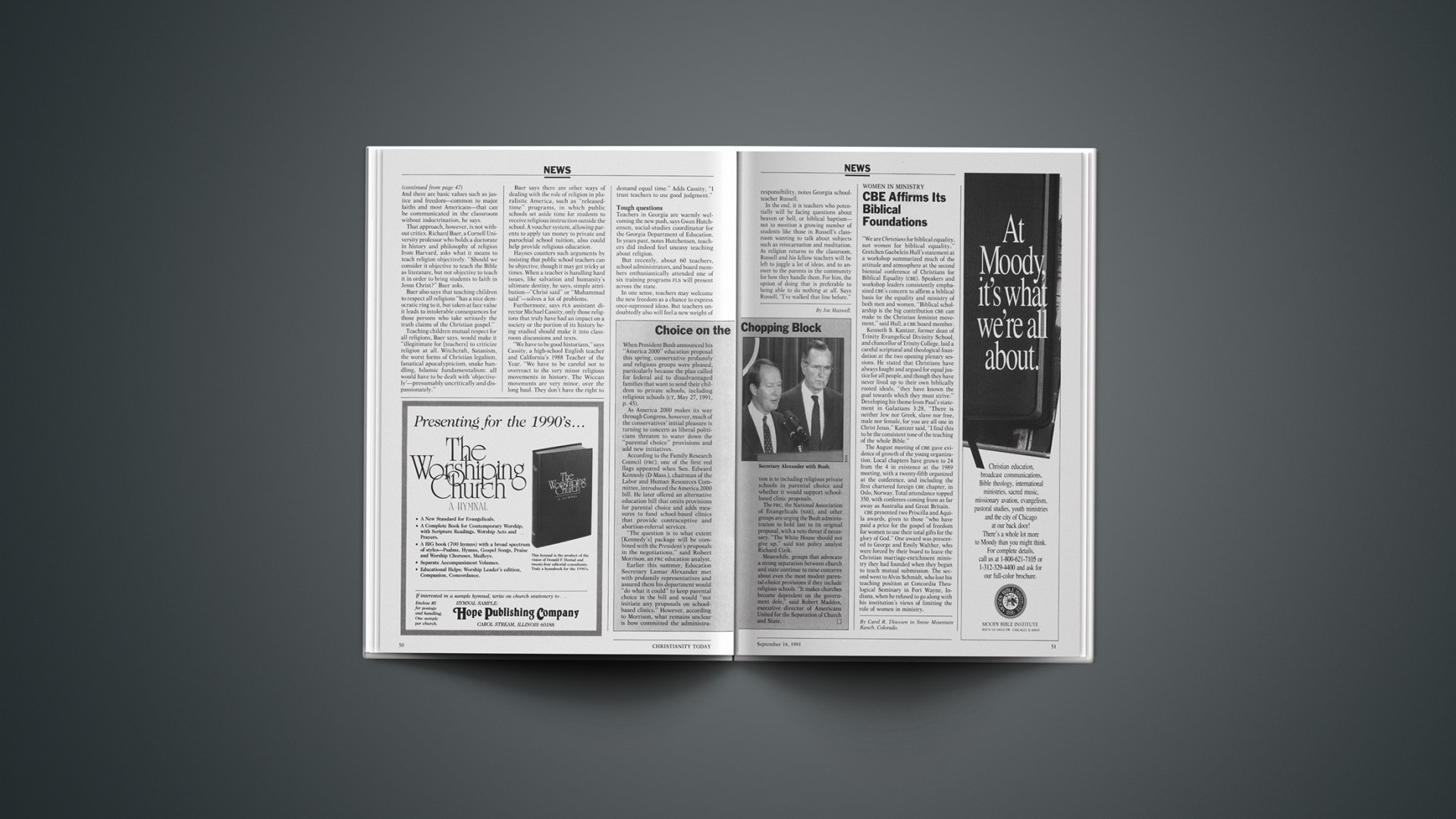“We are Christians for biblical equality, not women for biblical equality.” Gretchen Gaebelein Hull’s statement at a workshop summarized much of the attitude and atmosphere at the second biennial conference of Christians for Biblical Equality (CBE). Speakers and workshop leaders consistently emphasized CBE’s concern to affirm a biblical basis for the equality and ministry of both men and women. “Biblical scholarship is the big contribution CBE can make to the Christian feminist movement,” said Hull, a CBE board member.
Kenneth S. Kantzer, former dean of Trinity Evangelical Divinity School, and chancellor of Trinity College, laid a careful scriptural and theological foundation at the two opening plenary sessions. He stated that Christians have always fought and argued for equal justice for all people, and though they have never lived up to their own biblically rooted ideals, “they have known the goal towards which they must strive.” Developing his theme from Paul’s statement in Galatians 3:28, “There is neither Jew nor Greek, slave nor free, male nor female, for you are all one in Christ Jesus,” Kantzer said, “I find this to be the consistent tone of the teaching of the whole Bible.”
The August meeting of CBE gave evidence of growth of the young organization. Local chapters have grown to 24 from the 4 in existence at the 1989 meeting, with a twenty-fifth organized at the conference, and including the first chartered foreign CBE chapter, in Oslo, Norway. Total attendance topped 350, with conferees coming from as far away as Australia and Great Britain.
CBE presented two Priscilla and Aquila awards, given to those “who have paid a price for the gospel of freedom for women to use their total gifts for the glory of God.” One award was presented to George and Emily Walther, who were forced by their board to leave the Christian marriage-enrichment ministry they had founded when they began to teach mutual submission. The second went to Alvin Schmidt, who lost his teaching position at Concordia Theological Seminary in Fort Wayne, Indiana, when he refused to go along with his institution’s views of limiting the role of women in ministry.
By Carol R. Thiessen in Snow Mountain Ranch, Colorado.









